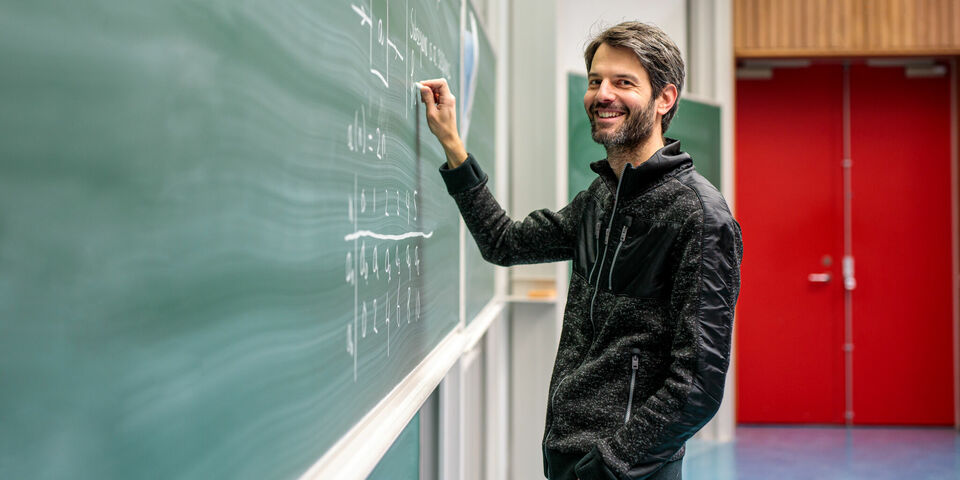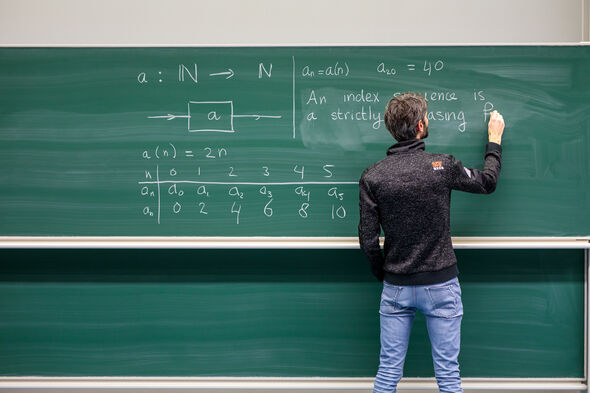Mathematician Jim Portegies joins Young Academy
The Young Academy will welcome a member of the TU/e community next year. Assistant professor Jim Portegies has been selected to join the national platform of young, leading scientists. The mathematician wants to devote himself to fostering a combination of friendliness and quality in science and education.
Mathematician Jim Portegies is among the ten scientists who have been selected to join the Young Academy of the Royal NetherlandsAcademy of Arts and Sciences (KNAW) next year. Portegies is currently a member of the Eindhoven Young Academy of Engineering. He will join the group of leading scientists and scholars at work at Dutch universities for a term of five years.
Portegies is an assistant professor and researcher at the Centre for Analysis, Scientific computing and Applications (CASA), where he works on algorithms that mimic how humans learn. “The driving idea behind my work is that the human learning process is governed by a mathematical process. My aim is to uncover and analyze that process,” he says. His research group is also working on the development of an artificial mathematics teacher. “Then we will have come full circle,” Portegies – who teaches two important first-year mathematics courses – says with a smile.
Collaboration
During his time with the Young Academy, Portegies wants to contribute to a closer collaboration between primary and secondary education and the world of academia. “When freshmen enter the university, we often accept their learning level as a given, but it would be nice if they would know a bit more about certain parts of the curriculum. This has consequences for our education.” Portegies believes that academics should have a greater say. “I think that the Young Academy could really help with that.”
Portegies would also like to strive to make the word of education and academia more friendly. “We are faced with a serious wellbeing problem,” he says. “I see colleagues struggling with work pressure, fear of failure, or the imposter syndrome, for example. Working in academia can also be quite tough, and academics can be harsh towards others with their reviews. I’m shocked sometimes by what I see happening around me, here in Eindhoven as well.”
Recognition and Rewards
Wellbeing also features prominently on the agenda of the Young Academy, Portegies knows. “They have a Recognition and Rewards program, for example, which is based on the idea that not every scientist has to excel in everything,” he says. “It remains to be seen whether it’s realistic to excel in teaching, research, administrative tasks and valorization all at once.”
If students and scientists were to adopt a friendlier attitude toward each other and toward themselves in particular, both their wellbeing and the quality of their work would improve significantly, Portegies says. “Some of my students, for example, feel that they’re not smart enough to understand certain difficult courses I teach, or even that they’ve chosen the wrong program. I try to talk to them about this and try to create space for them. Once they forget about their insecurities for a moment, it becomes easier to focus on mathematics. This is reflected immediately in the quality of their work.”
Cultural shift
Portegies believes that it’s time for a cultural shift in the world of academia. “It will be a slow-moving process, but I think that it’s possible. It’s important that we continue to engage in a conversation with one another, just as I try to do with students. We find it very hard in our community to talk about certain topics, such as social safety for example. Nevertheless, I would like us to start learning how to do this.”



Discussion